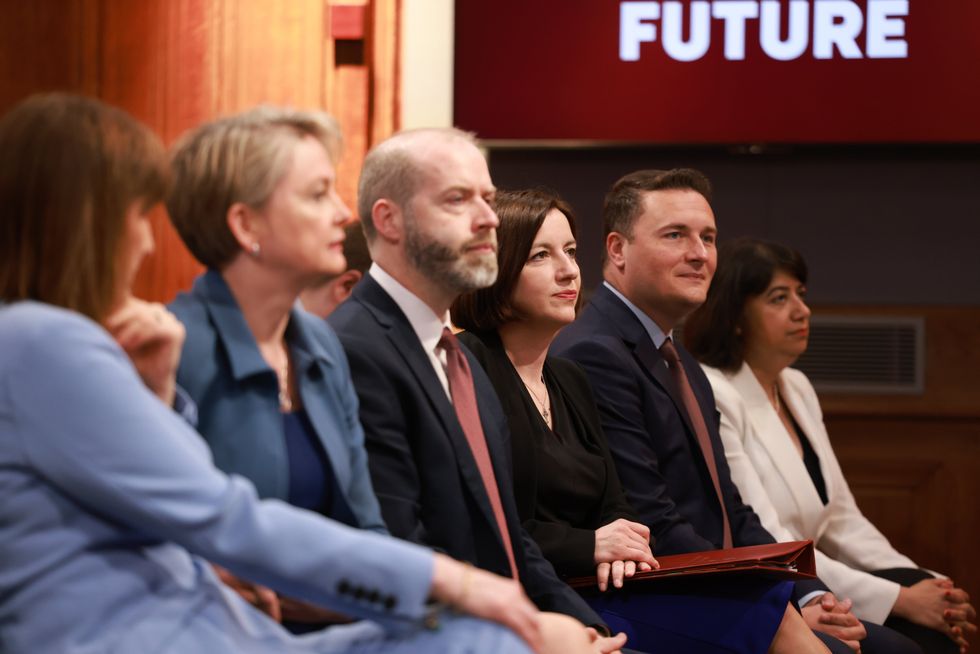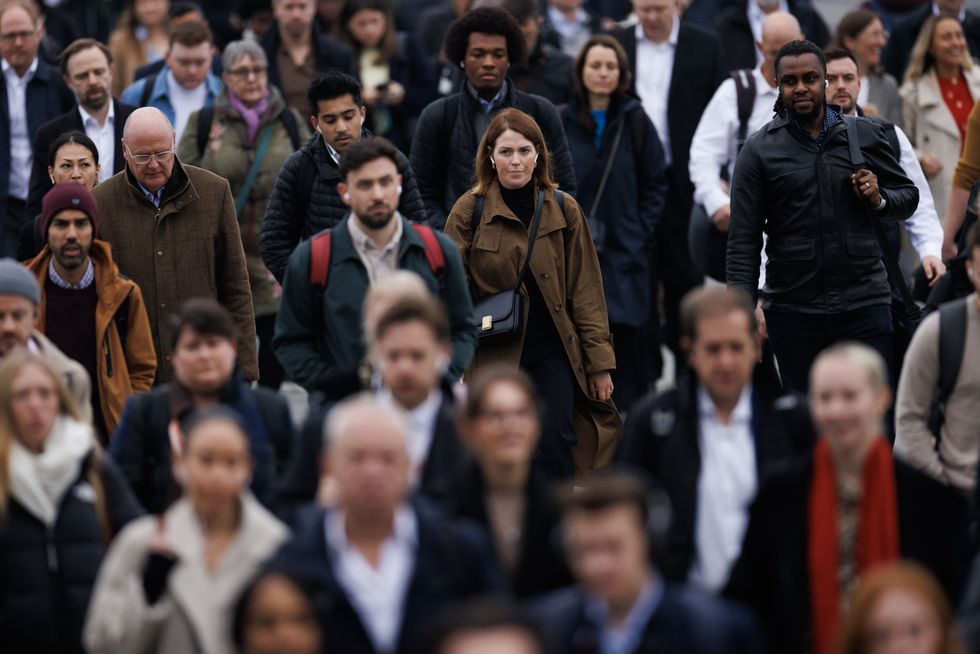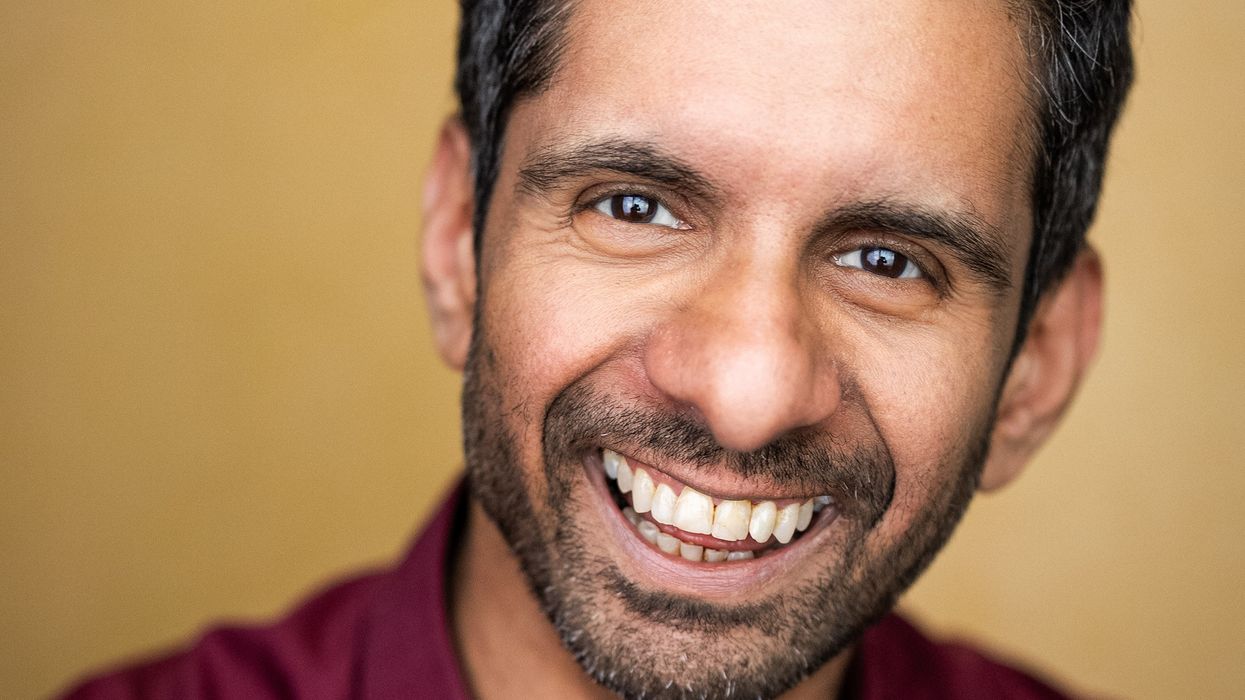Prime Minister Sir Keir Starmer vowed on Monday (12) to "finally take back control" of Britain's borders as the government unveiled policies designed to reduce legal immigration.
The Labour leader announced an end to an "experiment in open borders" that saw net migration rise to nearly one million people under the previous Conservative government.
Under the government's Immigration White Paper policy, there are plans to cut overseas care workers and increase from five to 10 years the length of time people will have to live in UK before qualifying for settlement and citizenship.
English language rules will also be strengthened, with all adult dependents required to demonstrate a basic understanding, while the length of time students can stay in the UK after completing their studies will be reduced.
Starmer said the policies would "finally take back control of our borders", recalling the pro-Brexit slogan used at the height of the campaign to leave the European Union in 2016.
- YouTubeyoutu.be
Video credit: Parliament TV
Net migration
Labour vowed in its general election manifesto last year to significantly reduce net migration, which stood at 728,000 in the 12 months to last June.
It had peaked at 906,000 in 2023 after averaging 200,000 for most of the 2010s.
Starmer, a former human rights lawyer who voted for the UK to remain part of the EU, is under renewed pressure to tackle immigration following the anti-immigration Reform party's gains in recent local elections.
Prime minister Sir Keir Starmer promised on Monday (12) to cut net migration to Britain significantly over the next four years, saying the country risked becoming "an island of strangers" without tougher rules on immigration.
Controlling immigration was a key factor in Britain's 2016 vote to leave the European Union, yet net arrivals reached record levels after it left the bloc, helping to boost the appeal of Nigel Farage's right-wing, anti-immigration Reform UK party.

In a sweeping set of immigration reforms, the Labour government said it would increase English-speaking requirements for immigrants, make it harder for them to stay in the country, and prevent companies including care homes from recruiting abroad.
The automatic right to apply for citizenship will only be granted to someone who has lived in Britain for 10 years, not five, and skilled worker visas will be restricted to graduate-level applicants.
"Make no mistake, this plan means migration will fall. That is a promise," Starmer told reporters in Downing Street. "If we do need to take further steps... then mark my words, we will."
He also rejected suggestions from business leaders that the tighter immigration rules would harm Britain's economy, saying growth had stagnated in recent years while immigration surged.
"The theory that higher migration numbers necessarily lead to higher growth has been tested in the last four years," he said. "That link doesn't hold on that evidence."
But he refused to set a target for net migration cuts, saying "arbitrary" pledges by previous governments had failed.
- YouTubeyoutu.be
Video credit: Parliament TV
Reform wins
While the current plans have been in the works for months, government officials acknowledge they need to do more to address voters' concerns about the high levels of immigration after Reform UK won more than 670 council seats in the English local elections this month as well as its first two mayoral posts and opened a big lead in opinion polls.
However, Starmer's tack to the right on immigration risks alienating Labour's large base of liberal supporters, with the Liberal Democrats and the Greens picking up votes on the left.
Immigration has long been a key issue for voters, with critics arguing that social cohesion can be damaged if the country does not build enough houses or expand public services to accommodate a larger population.
Starmer said nations depend on rules that set out rights and responsibilities, adding: "Without them, we risk becoming an island of strangers, not a nation that walks forward together."

However, Labour MP Nadia Whittome accused the prime minister in a social media post of mimicking "the scaremongering of the far-right".
"Migrants are our neighbours, friends and family," she said, adding the "anti-migrant rhetoric from the government is shameful and dangerous".
The white paper also includes new powers to deport foreigners who commit offences in the country.
Currently, the government is only informed of foreign nationals who receive prison sentences.
- YouTubeyoutu.be
Video credit: Parliament TV
Fair immigration
Under the new arrangements all foreign nationals convicted of offences will be flagged to the government.
"Britain has been strengthened by people coming to start new businesses, study at universities, contribute to our cultural and sporting excellence and do some of the toughest jobs in our country," home secretary, Yvette Cooper, told parliament.
"But to be successful and fair, our immigration must be properly controlled and managed," she said, vowing to "bring net migration down and ... turn the page on chaos".
The paper also includes new visa controls requiring foreign skilled workers to have a university degree to secure a job in the UK.
And to reduce lower skilled migration Cooper has said she aims to cut 50,000 lower-skilled worker visas this year.
On the plans to double the length of time before migrants can make settlement or citizenship requests, high-skilled individuals "who play by the rules and contribute to the economy" could be fast-tracked, according to Downing Street.
Farage accused Starmer of "playing catch up" on the issue.
"Starmer is a hypocrite who believes in open borders... Nobody believes a word he says," Farage said on X.
- YouTubeyoutu.be
Video credit: Parliament TV
“No credibility”
Shadow home secretary, Chris Philp MP, said: “Keir Starmer has no credibility on this issue. “This is the man who once described immigration laws as racist and wrote letters protesting at the deportation of foreign criminals.
“Starmer has tried to claim credit for the reduction in legal immigration since the election - which resulted from Conservative policies.
“Yvette Cooper admitted yesterday that their new policies would only reduce immigration by 50,000. That is not enough. The public rightly want the days of mass immigration to end.”
Care England, a charity representing the adult care sector, said the decision to close social care visas to new applications from abroad was a "crushing blow to an already fragile sector".
"International recruitment wasn't a silver bullet but it was a lifeline. Taking it away now, with no warning, no funding and no alternative is not just short-sighted - it's cruel," said chief executive Martin Green.
Higher net numbers of foreign students, along with a rise in people arriving from Ukraine and Hong Kong, led immigration numbers to quadruple in the years after Brexit.
Net migration - the number of people coming to Britain minus the number leaving - hit a record 906,000 in the year to June 2023, up from 184,000 who arrived in the same period during 2019, when Britain was still in the EU.
But businesses argue they cannot hire enough staff locally, and employers in science, technology and other areas warn that tough restrictions will hit overall economic growth.
The new measures mainly relate to reducing legal immigration, but the arrival of asylum seekers on small, often unseaworthy boats is an equally big challenge for the government.
Separate legislation to tackle irregular immigration, called the Border Security, Asylum and Immigration Bill, is currently going through parliament.
(Agencies)




